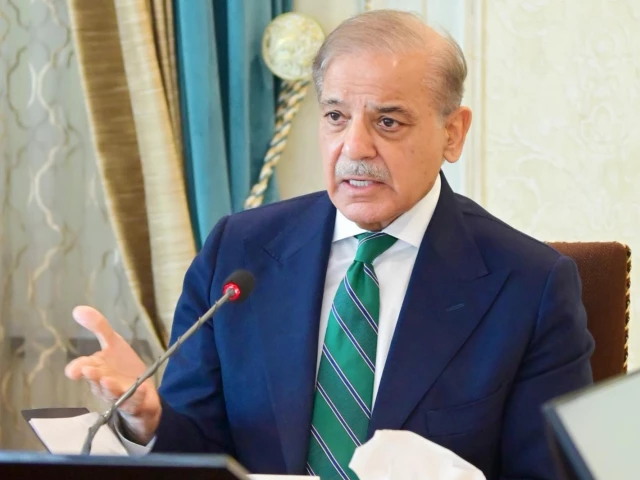PM's approval sought for increasing oil margins
Petroleum Division proposes recovery of Rs34b losses of refineries via IFEM

The Petroleum Division has sought the endorsement of Prime Minister Shahbaz Sharif for increasing profit margins of oil marketing companies (OMCs) and dealers and settling the losses of refineries.
Sources said that the Petroleum Division had tabled a summary before the Economic Coordination Committee (ECC), seeking an increase of Rs1.18 per litre in margins for the OMCs and dealers.
It also sought approval for the recovery of financial losses of oil refineries and OMCs amounting to Rs34 billion due to sales tax exemption on petroleum products.
It proposed that the oil industry should be allowed to charge Rs1.87 per litre through the inland freight equalisation margin (IFEM) to recover the losses of Rs34 billion. The third proposal was that the government should impose a 5% general sales tax (GST) on petroleum products in the upcoming budget for fiscal year 2025-26 to shield the oil industry from losses in the wake of sales tax exemption.
Sources said that the ECC had agreed to those proposals, but sought the consent of the prime minister. They said that the first two proposals should be implemented immediately, while the third, pertaining to the imposition of sales tax, was linked to the International Monetary Fund (IMF). Therefore, the government may implement it in the upcoming budget.
The ECC was informed that petroleum products – motor gasoline (Mogas), high-speed diesel (HSD), kerosene and light diesel oil (LDO) – had been classified as "exempted" under the Finance Act 2024. As a result, the input sales tax has become a cost incurred by the refineries and OMCs (estimated at Rs34 billion for financial year 2024-25) and it cannot be recovered through product prices, as these are regulated and fixed by the Oil and Gas Regulatory Authority (Ogra) under the government's policy.
A draft proposal to levy 3-5% sales tax on motor spirit (MS) and HSD had been prepared in consultation with the oil industry, Finance Division and Federal Board of Revenue (FBR). However, it could not be implemented due to the IMF's refusal to allow the reduced GST on those products.
It may be noted that the standard GST rate of 18% for MS/HSD will result in a price increase of around Rs45 per litre, which is not desirable. Any changes in the sales tax rate will require prior consultation with the IMF as well as approval from parliament.
Additionally, the OMCs and petroleum dealers have requested an increase in their margins on MS and HSD. In this regard, Ogra has recommended an increase of Rs1.13 and Rs1.40 per litre, respectively, to ensure the sustainability of oil supply chain. Ogra's recommendations have been reviewed and certain amendments have been suggested in the summary.
To partially address the financial issues of refineries, OMCs and dealers, the following proposals have been submitted for consideration:
The Petroleum Division said that since petroleum products (Mogas, diesel, kerosene and LDO) were exempt from sales tax during the current financial year, the unadjusted sales tax for refineries and OMCs from July 2024 to June 2025 on those products may be compensated through the IFEM (estimated at Rs34 billion). The amount may be recovered over 12 months.
It was further highlighted that for FY26, a 3-5% sales tax on the aforementioned products may be imposed through the Finance Act. However, in case these products remain exempt from sales tax, the unadjusted sales tax may continue to be compensated through the IFEM as a fallback option to keep the oil supply chain sustainable.
The margins of OMCs and petroleum dealers may be enhanced to maintain their business viability.
The Petroleum Division said that Ogra would develop a mechanism for the adjustment of GST claims for the above period and ensure effective utilisation of digitisation costs, along with implementation timelines, within one month of approval. The full cost of digitisation will be borne by the OMCs throughout the oil supply chain, including at outlets.






















COMMENTS
Comments are moderated and generally will be posted if they are on-topic and not abusive.
For more information, please see our Comments FAQ